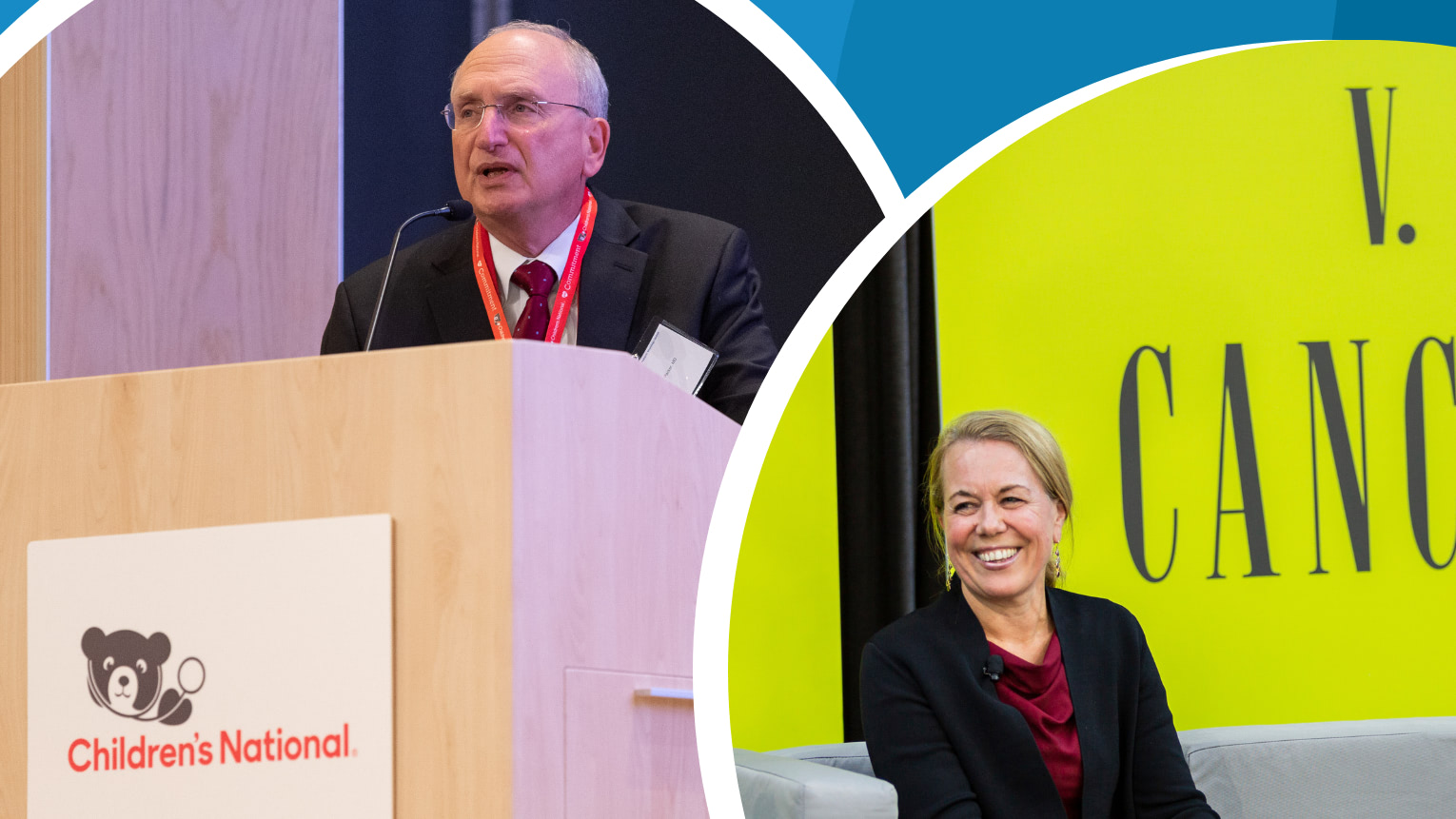CHILDREN'S NATIONAL RESEARCH INSTITUTE ACADEMIC ANNUAL REPORT 2023
'CLimperopoulous.jpg'
CPNMHR HIGHLIGHT
Innovating to understand health and disease in the mother-baby dyad
Children’s National Hospital has nurtured a dynamic clinical community of pediatric researchers for many years. Especially over the past decade, there has been a groundswell of clinical research focused on the fetus/newborn and maternal dyad, primarily emanating from the Prenatal Pediatrics Institute and Developing Brain Institute. In the Spring of 2023, through a strategic assembly of a critical mass of investigators from multiple disciplines, these various research initiatives were formally amalgamated into the Center for Prenatal, Neonatal and Maternal Health Research. Based on the stellar longstanding track record of research at Children’s National in this burgeoning new field of research, the inception of this new Center has generated widespread interest in the research community both nationally and internationally. Central to the mission of the Center is advancing the understanding of the complex and inextricably connected dyadic relationship between mothers and their babies, both physically and psychologically, from early in gestation until well into postnatal life.
Research in the prenatal period
Given the relative inaccessibility of the intrauterine environment, investigators in the Center are developing innovative and multimodal techniques to better understand and interpret signals of fetal well-being and distress. Novel diagnostic applications include leading-edge fetal imaging (such as quantitative magnetic resonance imaging and spectroscopy and fetal ultrasound), fetal electrophysiology (such as heart rate variability studies of autonomic function) and genetic/epigenetic techniques, among others. By casting light on the relative “black box” of the intrauterine environment, these investigations are advancing understanding of the prenatal origins of health and disease and their consequences from the fetal period and across the lifespan. The role of pediatric sub-specialist involvement in understanding the intrauterine experience of their future patients has as its logical future extension the involvement of pediatric subspecialists in the development of prenatal interventions for conditions diagnosed by the advanced fetal diagnostic techniques developed in centers such as ours.
Investigators in the Center have made ground-breaking discoveries about the effect on fetal well-being of a broad spectrum of pregnancy complications, including congenital heart disease, diabetes in pregnancy, placental failure and infectious diseases (including Zika and Covid-19 viruses), among others. Perhaps the most impactful area of recent research in the Center has been in the field of maternal mental health disorders and psychosocial stressors in pregnancy and their role in future cognitive, psychological and behavioral complications and their offspring.
A dedicated Clinical Trials Unit (CTU) has been built as part of the Center that will play an important role in ongoing research, particularly for studies that require prolonged, even overnight, data collection. The CTU will also allow comprehensive surveillance during drug trials and interventions such as prolonged oxygen administration for conditions such as placental insufficiency and congenital heart disease.
Research in the neonatal period
The enormously complex physiological changes during even normal transition from fetal-to- postnatal life make this transition a particularly hazardous period for injury in the compromised fetus. In addition to advancing the understanding of fetal development in an adverse intrauterine environment, the studies during the prenatal period will also focus on identifying fetuses likely to have particularly high risk of a dysfunctional and injurious transition to postnatal life. Investigation into the anticipated hazards that an individual fetus may have will allow for personalized interventions and support at the time of birth. Such interventions also require accurate monitoring of neonatal well-being to guide support. Since the immature brain is most vulnerable to the hazards of transition, the Center has a major focus on the development of neuromonitoring techniques, and a dedicated Neuromonitoring Laboratory is currently in development. The techniques being developed include optics and near-infrared spectroscopy for monitoring brain oxygenation and blood flow, advanced EEG techniques and autonomic monitoring techniques, amongst others.
Quantitative outcome measures in the high-risk newborn
Although the ultimate measures of life-quality are heavily influenced by successful neurodevelopment over childhood, adolescence and adulthood, such outcome measures often take years to stabilize and become reliable. Such delays impede the nimble translation of research discovery into clinical benefit. The Center has developed a very strong focus on quantitative imaging and electrophysical approaches to identify early life biomarkers that may predict later inset adversity. Refining the predictive quality and power of these biomarkers is a major focus of our Center.
DC Perinatal Consortium
Access to normal and high-risk pregnancies is a sine qua non for the success of our Center. Concerted efforts to bring together investigators from the five major delivery centers in the District of Columbia and its only major pediatric center, Children’s National Hospital has led to the development of the DC Perinatal Consortium. A number of large multicenter-funded studies have been successfully conducted within this consortium, and many are ongoing.
Advocacy
The Center’s location in Washington, D.C., provides unparalleled opportunities for knowledge dissemination and engagement in policy and advocacy spaces critical to shaping the future of pediatric health care. Recognizing the profound and inextricable connection between maternal and child health, the Center acknowledges the intergenerational nature of health and disease, highlighting the central role of maternal health in child outcomes. This comprehensive approach drives the Center to lead transformative healthcare initiatives, reimagining care for children and mothers.

